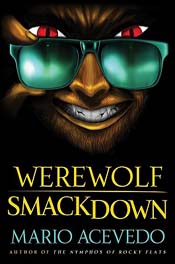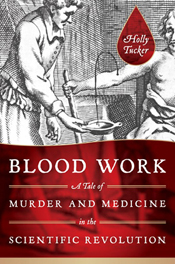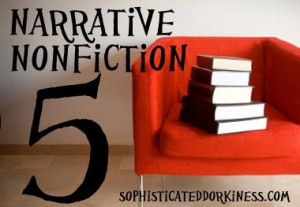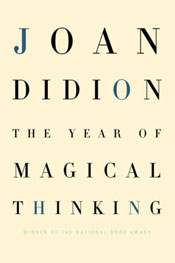 Monday Tally is a weekly link round-up of some of my favorite posts discovered over the week. If you have suggestions for Monday Tally, please e-mail sophisticated [dot] dorkiness [at] gmail [dot] com. Enjoy!
Monday Tally is a weekly link round-up of some of my favorite posts discovered over the week. If you have suggestions for Monday Tally, please e-mail sophisticated [dot] dorkiness [at] gmail [dot] com. Enjoy!
This graphic from Discover’s Not Exactly Rocket Science blog is the best summary of the writing process that I’ve never seen. Go look at it, right now.
Flavorwire offered 10 food and literature pairings, including spaghetti with Infinite Jest by David Foster Wallace and chocolate chip cookies with Revolutionary Road by Richard Yates.
I appreciated this smart-ass look at 50 books you “must” read before you die from The Telegraph.
The Atlantic published a Q&A with Holly Tucker, author of Blood Work, about what history teaches us about blood, stem cells, and fear. I posted my own review of Blood Work this week — read it!
[continue reading…]
{ }
 This morning I made a quiche, and it was excellent. You can read a little bit about it and see a fuzzy picture at my Day Zero project blog.
This morning I made a quiche, and it was excellent. You can read a little bit about it and see a fuzzy picture at my Day Zero project blog.
Now, for reading: At the beginning of March I proposed a “perfect” reading month — the books I would read that would make me feel satisfied with how I spent my time with books. So how did I do in fulfilling that goal? Pretty good! Here’s my reading list for March, with books from my original “perfect month” list in bold (links go to my reviews):
- Moonwalking With Einstein by Joshua Foer
- The Ghost Map by Steven Johnson
- The United States of Arugula by David Kamp
- The Dressmaker of Khair Khana by Gayle Tzemach Lemmon
- Blood Work by Holly Tucker
- SuperFreakonomics by Steven D. Levitt and Stephen J. Dubner
- Reality Bites Back by Jennifer L. Pozner
- Paper Towns by John Green
- In the Sanctuary of Outcasts by Neil White
- But Not For Long by Michelle Wildgen
- The Long Goodbye by Meaghan O’Rourke
Pretty good. I thought I’d finish nine books, and I actually go through 11. And even better, I got through all of the specific books on my list — six of them — and had time for some random reading. I really happy about that. The only thing I didn’t accomplish was reading War and Peace. I got through a little bit, but didn’t finish the section I wanted to get to.
I liked writing up a book list for the month, so I’m going to do another one for April. Here are the books I’m hoping to get to:
- War and Peace by Leo Tolstoy (through page 417 — Volume 2, Section 2).
- Pox: An American History by Michael Willrich for a TLC Book Tour.
- The Girl Who Was on Fire: Your Favorite Authors on Suzanne Collins’ Hunger Games Trilogy, a book coming out this month I for got review from BenBella Books. I’ve been craving some literary theory lately and a skim of one has me optimistic about its awesomeness.
- Beautiful & Pointless by David Orr, a review copy from Harper about reading modern poetry (Yay, National Poetry Month! Yay, literary theory light!)
- This Life is in Your Hands by Melissa Coleman, also for review from Harper.
- Lost in Shangri-La by Mitchell Zuckoff, again for review from Harper.
- The Wilder Life by Wendy McClure, which I’ll be reading and reviewing for my next book review in The Cap Times.
- The Imperfectionists by Tom Rachman for my book club (yay!)
- Priceless by Nicole Riche, which I explained in my post yesterday.
- Random book!
I decide I’m only going to read my own books during the Read-a-Thon on April 9 (are you signed up yet?), so I should easily be able to get in some random books that way. I’m not sure if I’ll get through all the review commitments, but I’m sure gonna try. I got a little crazy with the Harper review books for April, but they’re a publisher that puts out reliably entertaining books, so I’m excited.
If you’re keeping track of my progress in the TBR Dare… I pretty much failed this month. There were a bunch of books not previously on my list that I dipped into, but you know what? That’s ok. I went a little review copy crazy in April, but I’m already cutting back for May to continue with the spirit of reading from my shelves. Right now I only have two review commitments in May, and I’m hoping I can keep it that way.
What books are you looking forward to reading in April? Any of these on the list that I should be sure to get to?
{ }
This is a story about how a dare, an open-minded friend, and a bunch of unwanted books came together to create a new book club, tentatively called “Not So Great Expectations.”
The players in this story are me and my friends Kristin and Katjusa. Kristin works at an office that has a bookshelf of free books people regularly borrow from. The excerpts below are edited Gchat conversations from earlier this week.
And so we begin!
Tuesday Afternoon
 Kristin: We got a book into the office called Werewolf Smackdown — should I snag it for you?
Kristin: We got a book into the office called Werewolf Smackdown — should I snag it for you?
Kim: Please do. I cannot think of anything I want to read more than that.
Kristin: I will pay you $5 to read and review it for your blog. Think about it.
Kim: OMG, it’s the fifth book in a series.
Kristin: It’s got all 5-star reviews on Amazon! You should read it, broaden your horizons 😀
Kim: Maybe you should read it 🙂
Kristin: Maybe I will.
Kim: This feels like a game of chicken neither of us will win.
Kristin: LOLOL. We could make it a book club book, then we all win.
Kim: WINNING!
I thought that was that, until the next day…
[continue reading…]
{ }

Earlier this week, my review of Blood Work by Holly Tucker for The Cap Times posted online. This was my second “professional” review (the first being Sarah Blake’s The Postmistress), and I have to say, this one was a lot easier to write. I think that’s because Blood Work is nonfiction, which is much more up my alley.
Blood Work is a history of blood transfusion in France between 1665 and 1668. At that time, French and English scientists were in a race to see who could perform a successful transfusion the soonest, first focusing on animals and then people. The first person to perform a successful animal-to-human transfusion was a French physician named Jean-Baptiste Denis, a doctor who was not a part of the French medical establishment at the time. In 1667 he transfused the blood of a calf into a well-known Parisian madman, Antoine Mauroy.
The experiment was initially deemed a success. Mauroy went home with, it seemed, no ill effects, and Denis celebrated his accomplishment. Yet, when Denis went to check on his patient some days later, Mauroy was very sick. Within days Mauroy was dead, and Denis was accused of murder. In the court battles that followed, blood transfusion was effectively outlawed in France, which ultimately led to the end of blood experimentation in Europe for the next 150 years.
When I interviewed the author, Holly Tucker, for my story, she talked about how a lot of the inspiration for working on the book was trying to solve the Denis case — did Mauroy die of natural causes, or was he murdered (by someone else) as a way to discredit Denis’ experiment and prevent blood transfusion from becoming an accepted scientific practice?
[continue reading…]
{ }
 I’m in the middle of reading The Long Goodbye by Meaghan O’Rourke, the story of O’Rourke’s experiences after her mother’s death from at age 55. While I don’t actively seek out memoirs about grief, it seems like they have been a big part of my reading lately.
I’m in the middle of reading The Long Goodbye by Meaghan O’Rourke, the story of O’Rourke’s experiences after her mother’s death from at age 55. While I don’t actively seek out memoirs about grief, it seems like they have been a big part of my reading lately.
About a month ago, I read an article in the New York Times where O’Rourke and Joyce Carol Oates discuss why they chose to write about their own losses, and why books about loss can resonate with readers.
Although the article gives a list of books within the “grieving memoirs” category, I’d already started working on this list and it felt a shame to let it go. Grief is an experience that is, I think, tough to talk about. The authors of each of these memoirs — all women, by just coincidence — explore grief in different but, I hope, equally powerful ways.
The Year of Magical Thinking by Joan Didion
 Joan Didion’s account of the year after her husband, John Dunne, unexpectedly passed away is the first memoir of loss that I’d ever read. When I picked it up, I was apprehensive — it seemed like it could be too much sadness for me at that point. Yet when I finished, I immediately wanted to read it over again. As I wrote in my review,
Joan Didion’s account of the year after her husband, John Dunne, unexpectedly passed away is the first memoir of loss that I’d ever read. When I picked it up, I was apprehensive — it seemed like it could be too much sadness for me at that point. Yet when I finished, I immediately wanted to read it over again. As I wrote in my review,
I guess my point is to not go into this book thinking that it’s going to be easy. It’s absolutely worth it — this was a fantastic book — but it can be emotionally difficult to read.
Didion is a powerful, specific, and beautiful writer, and I think The Year of Magical Thinking is not to be missed.
[continue reading…]
{ }
 Monday Tally is a weekly link round-up of some of my favorite posts discovered over the week. If you have suggestions for Monday Tally, please e-mail sophisticated [dot] dorkiness [at] gmail [dot] com. Enjoy!
Monday Tally is a weekly link round-up of some of my favorite posts discovered over the week. If you have suggestions for Monday Tally, please e-mail sophisticated [dot] dorkiness [at] gmail [dot] com. Enjoy!

 Kristin: We got a book into the office called Werewolf Smackdown — should I snag it for you?
Kristin: We got a book into the office called Werewolf Smackdown — should I snag it for you?
 I’m in the middle of reading
I’m in the middle of reading  Joan Didion’s account of the year after her husband, John Dunne, unexpectedly passed away is the first memoir of loss that
Joan Didion’s account of the year after her husband, John Dunne, unexpectedly passed away is the first memoir of loss that